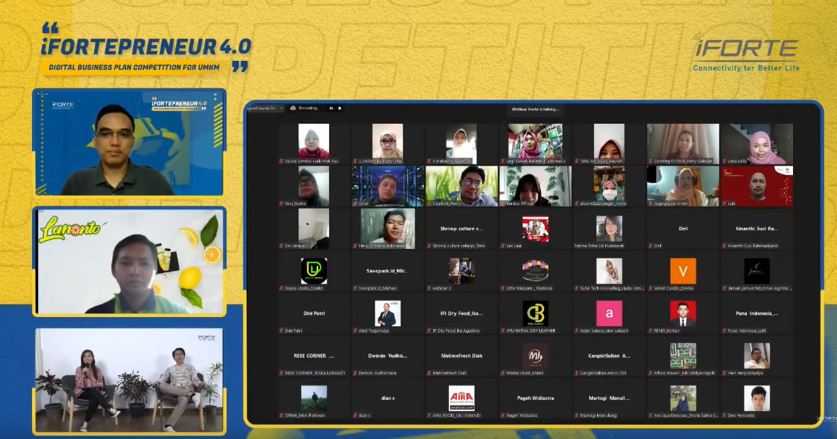SMEs are the backbone of the Indonesian economy by absorbing up to 97% of the workforce. However, the COVID-19 pandemic has been both a threat and an opportunity for SMEs to continue to grow. By applying the concept of digitization, SMEs are expected to adapt to COVID 19 and reach a broader market.
 A Lecturer and Researcher of SBM ITB, Yulianto Suharto, PharmD, MBA, MSc, revealed that digitalization is one of the business concepts currently being carried out. The COVID-19 situation makes digitalization is unavoidable. Yulianto explained that the concept of digitization uses digital tools to help business processes, such as digital marketing that uses digital platforms such as e-commerce or social media to promote products or services.
A Lecturer and Researcher of SBM ITB, Yulianto Suharto, PharmD, MBA, MSc, revealed that digitalization is one of the business concepts currently being carried out. The COVID-19 situation makes digitalization is unavoidable. Yulianto explained that the concept of digitization uses digital tools to help business processes, such as digital marketing that uses digital platforms such as e-commerce or social media to promote products or services.
“Digitalization is how to use digital information to help business processes. Digital marketing is a form of digitalization to assist business processes,” said Yulianto in the ifortepreneur 4.0 workshop, held on Wednesday (10/13/2021).
 Iforteprenuer 4.0 is a business plan competition organized by PT. iForte Infotek Solutions to help SMEs digitize and digital transformation. Yulianto Suharto was a speaker in the workshop series of Ifortepreneur 4.0 activities, where he explained digitization and digital transformation to SME owners. Besides Yulianto, SMEs who have succeeded in digitizing also attended the workshop. “With the activities initiated by Iforte, SMEs have a platform so that SMEs do not miss the train with a change in the digital mindset,” highlight Yulianto.
Iforteprenuer 4.0 is a business plan competition organized by PT. iForte Infotek Solutions to help SMEs digitize and digital transformation. Yulianto Suharto was a speaker in the workshop series of Ifortepreneur 4.0 activities, where he explained digitization and digital transformation to SME owners. Besides Yulianto, SMEs who have succeeded in digitizing also attended the workshop. “With the activities initiated by Iforte, SMEs have a platform so that SMEs do not miss the train with a change in the digital mindset,” highlight Yulianto.
Through his presentation, Yulianto also revealed that the digitization process could create new business potential. He then gave an example, such as digital marketing can eliminate regional boundaries so that SMEs can sell their products to Papua.
In addition to digitization, Yulianto also mentioned one concept often used today, namely digital transformation. Digital transformation is not only widely implemented by SMEs but is also loved by large companies. He believed that digital transformation can improve services to consumers. “Digital transformation is how to build a digital culture to serve consumers faster, better, and more accurately,” he said.




